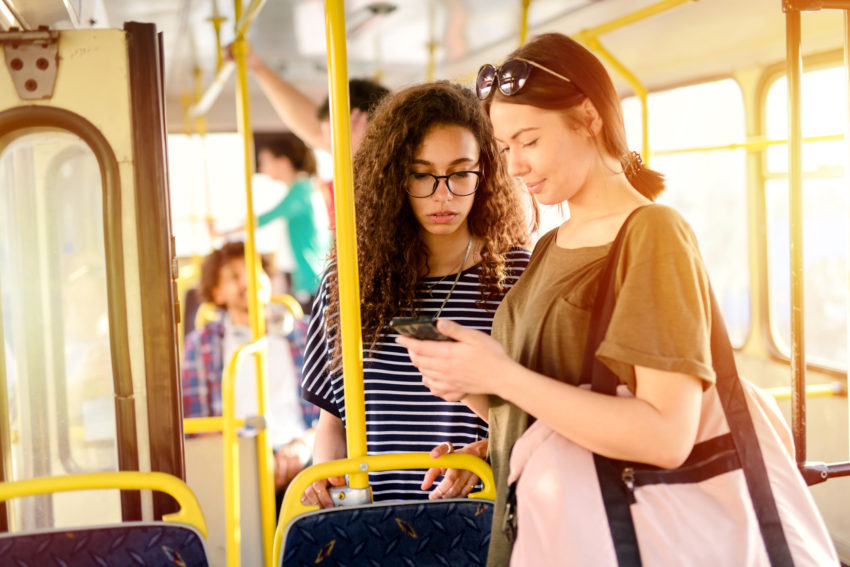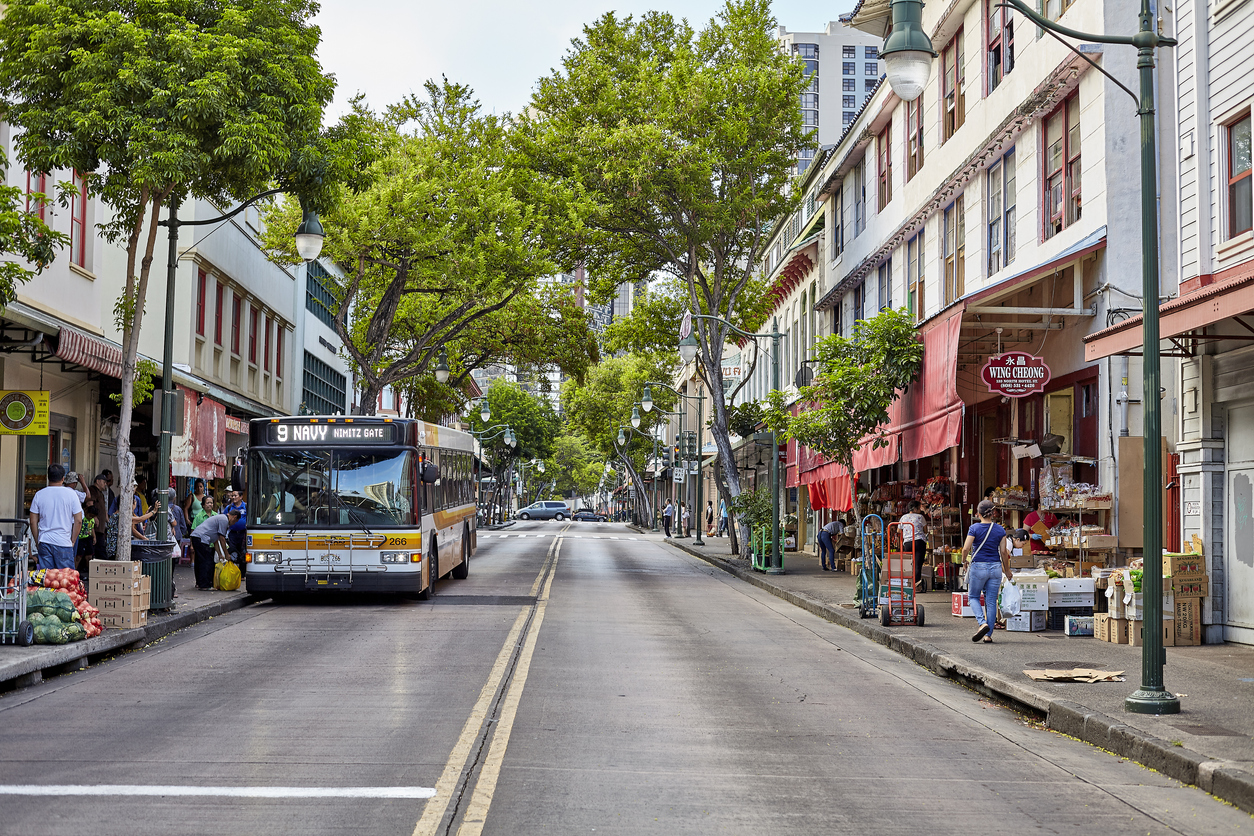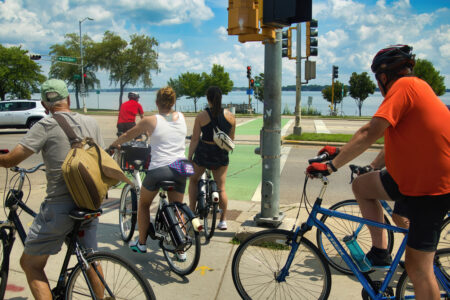
Share On Social!
As families practice social distancing to slow the spread of COVID-19 and as governments close non-essential businesses, employees are losing their jobs and transit is losing ridership.
Economists estimate that nearly three million Americans could lose their jobs by summer. Many of these are low-wage workers in service industries with little savings to get through a recession.
Recently President Trump warned Senate Republicans that the coronavirus pandemic could cause the unemployment rate to reach 20%, according to NBC News. This is double the highest unemployment rate from the Great Recession.
On March 25, 2020, U.S. legislators agreed to a $2 trillion coronavirus economic stimulus bill.
“Without federal financial assistance, many transit agencies and paratransit service providers will be forced to dramatically reduce or eliminate critical service,” according to a non-profit’s letter to Congress advocating for emergency transit funding. “This could cut off health care and other workers from jobs, and further harm economic output.”
What will the bill inclide?
Workers Losing Jobs, Transit Agencies Losing Riders During Coronavirus Outbreak
Marriott International, for example, will begin shutting down some of its hotels and laying off tens of thousands of employees.
The American Hotel and Lodging Association (AHLA), predicts a 20% decline in hotel occupancy could result in the loss of 2.6 million jobs.
In a crisis like this, transit is crucial to get people to the places they need to go.
However, a loss in fares and sales-tax revenue limits a transit agency’s ability to provide frequent service.
Without transit service, many low-income and elderly people will be unable to get to the grocery store or medical appointments.
The Metropolitan Transportation Authority, which runs New York City’s subway, buses, and two commuter rail systems, estimates it will lose $3.7 billion in fares due to the drop in ridership.
So far, to address the severe economic downturn expected from the coronavirus pandemic, the government has passed two stimulus bills:
- Stimulus Phase 1 on March 6: $8.3 billion for the Centers for Disease Control and Prevention (CDC) and other agencies to make coronavirus tests available and to develop treatments; however, first responders still can’t buy protective gear and supplies.
- Stimulus Phase 2 March 18: $100 billion for the Families First Coronavirus Response Act to provide paid leave provisions, increased funds for nutrition programs, free coronavirus testing, and increased unemployment insurance benefits; however, up to 19 million workers are excluded.
On March 19, Senate Republicans proposed a third stimulus bill, $1 trillion for industry-specific bailouts and payments to individual taxpayers.
Some have argued that the proposal is weighted to heavily towards corporate America and lacks protections for workers.
Trillion Dollar Coronavirus Stimulus Bill Under Construction
The full details of the Coronavirus Aid, Relief and Economic Security Act are not yet known.
But elements include:
- $500 billion in financial support to corporations,
- $350 billion in small businesses loans,
- $250 billion set aside for direct cash payments to individuals/families,
- $250 billion in unemployment insurance benefits,
- funding to the health-care industry.
- Also, the coronavirus stimulus bill includes $15 billion in SNAP funding, a big win. The money would be used when USDA deems it “necessary to support participation should cost or participation exceed budget estimates to prevent, prepare for, and respond to coronavirus,” according to The Hill.
One-time, direct cash payments to individuals would be between $600 and $1,200 per adult and up to $500 per child.
Unfortunately, the poorest families would see smaller benefits or no benefits.
An early analysis shows that about 22 million people earning under $40,000 a year would see no benefit, according to the Washington Post.
“We think [the proposed bill] will be insufficient to stem the tide of job loss and closing of hotels that we’re seeing, candidly,” said Brian Crawford, the top lobbyist for the American Hotel & Lodging Association, according to Politico.
Many are concerned that a one-time payment won’t offset the impending spike in poverty.
“Those communities that are marginalized, that are underresourced or underserved, will always suffer more during a crisis like this,” Dr. David Acosta, chief diversity and inclusion officer for the Association of American Medical Colleges, told AAMCNews. “Any health inequities that they already experience will only be exacerbated by a pandemic.”
Coronavirus Stimulus Bill Favors Airlines, Cruises
The bill calls for $300 billion in small business loans to cover payroll, paid sick leave, and health care benefits through lenders approved by the Small Business Administration. These would be forgiven if firms retain their employees through June 30, 2020.
Numerous states across the country are concerned that farmers markets are not included
About $200 billion would go towards industries like airlines and cruise lines. The bill would also reduce the tax liability of large corporations.
 Many are concerned about the lack of oversight for these loans and guarantees.
Many are concerned about the lack of oversight for these loans and guarantees.
“These industries already have access to cash reserves from their wealthy investors,” said Public Citizen lobbyist, Craig Holman, according to the New York Times. “[Large corporations] have a very poor track-record when it comes to spending bailout funds, using much of the money to preserve profits for shareholders, stock buybacks and hanging on to reserves.”
The proposal also limits paid leave provisions provided in the recent Families First Coronavirus Response Act.
“Put simply, the federal government needs to finance a much larger part of household consumption in coming months, transfer significant fiscal aid to state governments, and ramp up direct government purchases (particularly on items helpful in fighting the epidemic),” according to Josh Bivens with the Economic Policy Institute’s Working Economics Blog.
Coronavirus Stimulus Bill Curbs Public Transit
The American Public Transit Association is asking for $16 billion in emergency funding to cover the loss in fare and sales-tax revenue.
On March 18, two non-profit organizations, Transportation for America and the Union of Concerned Scientists, sent a letter to Congress signed by more than 220 elected officials, cities, and organizations calling for $13 billion in emergency funding for transit agencies.
They are asking people to urge their members of Congress to support emergency funding for transit.
It’s already working.
Senators modified the proposal to include $20 billion for transit.
Numerous local petitions and letter campaigns urging elected officials to invest in transit have also popped up.
For example, the Transbay Coalition, a grass roots transportation advocacy group in the Bay Area, is asking residents to call on the federal government to support Bay Area public transit.
The Active Transportation Alliance, a coalition of people who working to make walking, biking and transit safe and easy options for getting around Chicagoland, is asking residents to tell Congress that any COVID-19 stimulus bill must include public transit.
“Without additional funding for direct operating assistance during this crisis, public transit agencies will be forced to use their limited capital funding to maintain operations during this crisis, undermining the long term fiscal health of the agency, and worsening the already significant multi-billion dollar maintenance backlog,” the letter states.
Numerous petitions and letter campaigns urging elected officials to designate farmers markets as essential services and to provide relief family farmers and farmers markets have also popped up.
For example, the California Alliance of Farmers’ Markets sent the California Department of Public Health and Governor Newsom a letter signed by hundreds of farmers, organizations, and other concerned citizens urging the agency to issue “a statement affirming the essential role Certified Farmers’ Markets play for California’s farmers, economy, and communities across the state, and equating Certified Farmers’ Markets with grocery stores and other retail outlets for the purposes of COVID-19 containment policies,” according to Civil Eats.
The Farmers Market Coalition sent a letter to the federal government to ensure farmer’s markets are included in the federal aid package. They also drafted a petition and sample email so you can urge elected leaders to provide relief for family farmers and farmers markets.
By The Numbers
27
percent
of Latinos rely on public transit (compared to 14% of whites).



